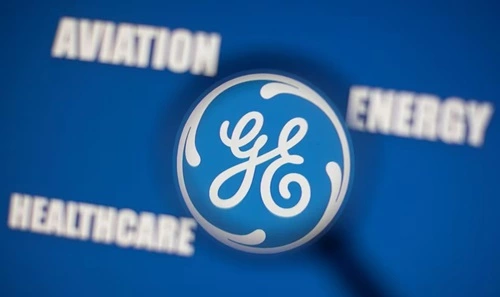Well, the capital goods field is nothing else but the manufacturing and distribution of the goods. And among other fields, without a doubt, the capital goods field is a growing field. Within this field, there are literally dozens of companies around the globe. When talking about our country, the United States, there are some major players in this game. You might have heard a few names like GE, Boeing, Caterpillar, or something like that, but what about other big names in this scene? Well, that’s what we are onto today because here we will be taking a good look at the top 10 companies in the capital goods field for 2024.
If you are an eager investor looking forward to investing in some companies that are big names and growing like crazy in the capital goods field, then you’d love this post. If that’s what you find intriguing, then keep on reading because you’ll find a lot of insights within this post about these companies. Alright, enough with the introduction stuff, let’s actually get going now, shall we?
1. General Electric

- Market Cap: $137.89 billion
- Employees: 1,72,000+
Sure, GE’s a household name, but get this, it’s ancient, like 1892 kind of ancient! The GE we know today? That didn’t kick off until Edison General Electric and Thomson-Houston Electric teamed up. You might think GE as just some energy or tech company, right? But guess what, they’re juggling way more, think aerospace, power, renewable energy, and yep, even finance. And oh, remember when GE shook things up in November 2021 by deciding to split into three? The first one out was GE HealthCare, which hit the ground running this January. Crazy stuff, right?
2. Boeing
- Market Cap: $157.56 billion
- Employees: 142,000+
Now, let’s talk Boeing. If you haven’t heard of Boeing, you’ve gotta be living under a rock! It’s a huge name, big in the USA’s history. Started back in 1916, Boeing quickly shot up to be a big player in aerospace. But that’s not all, they’ve spread their wings worldwide, dealing with both military and commercial aircraft. You’ve gotta know planes like the Boeing 737, 747, 777, and the 787, right? Total superstars! And hey, just this December 2023, Boeing went and delivered the first-ever 787 Dreamliner to a Chinese airline. That’s a massive leap forward and could open heaps of opportunities, not just eventually, but like, real soon.
3. Caterpillar
- Market Cap: $147.82 billion
- Employees: 5,001 to 10,000
Market Cap-wise, Caterpillar, or CAT for short, is for sure the third biggest company in the capital goods field. The company’s history in itself is pretty intriguing and interesting because it became a thing after the merger of the Holt Manufacturing Company and the C. L. Best Tractor Company in 1925. Now, some of you might only know Caterpillar as this big company that sells construction and mining equipment, right? Well, you see, Caterpillar Inc. is way more than that actually because it is involved in a lot of other areas as well like diesel and natural gas engines, industrial gas turbines, diesel-electric locomotives, and whatnot. Financially, the company has been doing pretty great, and we can say that for sure because the market cap of this company has soared quite a bit this year, and yeah, the boards or directors have also announced the $1.30 dividend per share in December 2023.
4. Honeywell
- Market Cap: $135.57 billion
- Employees: 97,000+
Started up in the good old days of 1906, this isn’t just some run-of-the-mill company we’re talking about. It’s a titan in its own right, dominating fields like aerospace and building technologies, among other cool stuff. They’re dabbling in everything from high-flying aerospace services to those slick turbochargers that you’ve probably heard about. And here’s a juicy bit for you, in 2023, Honeywell decided to play it big. They went ahead and scooped up Carrier’s security unit, laying down a hefty $4.95 billion. Why, you ask? Simple, they’re looking to beef up their game in building safety.
5. Raytheon Technologies (RTX)
- Market Cap: $119.68 billion
- Employees: 1,82,000+
Born from the merger of Raytheon Company and United Technologies in 2020, RTX is far from just another face in the aerospace and defense crowd. This giant, tracing its roots back to 1922, is a force to be reckoned with. Imagine everything from high-tech missile systems to cutting-edge defense electronics and aerospace engineering. RTX is knee-deep in stuff like surveillance, weapons, and cybersecurity. Oh, and just so you know, the U.S. Department of Defense? They’re pretty much on RTX’s speed dial. But hold on, 2023 threw a bit of a curveball their way. CEO Greg Hayes made his exit, and who steps in? Chris Calio, with eyes set on nothing but growth. And if that’s not enough, RTX went ahead and nabbed an $80 million contract for some state-of-the-art electronic warfare system for the U.S. Navy.
6. Lockheed Martin
- Market Cap: $111.20 billion
- Employees: 115,000+
Lockheed Martin is actually like a juggernaut in American aerospace and defense that took flight back in 1995, born from the union of Lockheed Corporation and Martin Marietta. And yeah, they’re not just playing in the big leagues, they ARE the big leagues, especially when it comes to advanced military and civilian aircraft. The F-35 jet, top-tier missile systems, space technology, you name it, Lockheed Martin’s got its hands on it. So, how did 2023 treat them? Financially, pretty solid, though they did hit a slight bump in net earnings.
7. John Deere
- Market Cap: $111.21 billion
- Employees: 69,634
Now, let’s talk about Deere & Company, but you probably know it better as John Deere, right? Kicked off way back in 1837 in Illinois, this giant now has its footprints all over the globe. What’s on their product list, you ask? Well, they’ve got everything from farm machines to construction and forestry gear, not to mention engines and even those lawn care tools you see everywhere.
8. Eaton
- Market Cap: $95.29 billion
- Employees: 92,000+
Next up, Eaton Corporation PLC. Heard of them? Ever since the establishment of this company way back in 1911, they have been a major player globally for things like electrical components, hydraulics, you name it, and even aerospace and vehicle systems. Their main gig? Helping folks use power efficiently and safely. Now, in 2023, they’re really diving into this whole energy transition thing and even buddying up for educational partnerships. Value-wise, we’re talking big numbers here, $91.30 billion big. And here’s a juicy bit though, they just bagged a cool $15 million contract for an electrical facility down in Miami-Dade.
9. Illinois Tool Works (ITW)
- Market Cap: $78.81 billion
- Employees: 45,000+
So, have you heard about Illinois Tool Works, or ITW, as some of you like to call it? This company’s been around since 1912, can you believe it? These guys are everywhere, from automotive to electronics, food equipment, and let’s not forget welding and construction. That’s not even the whole list! And yeah, their stock price? It’s been climbing up the ladder recently. This could mean two things: ITW’s either knocking it out of the park in its industry or, and here’s a twist, it might be a tad overvalued. Yeah, you heard it here first!
10. Northrop Grumman
- Market Cap: $69.84 billion
- Employees: 100,000+
Northrop Grumman actually came into existence back in 1994, which to be honest is not ancient history, but they’re not exactly newbies either. They’re huge in both military and civilian aviation and get this, they’re even stepping into space exploration and cybersecurity. And their portfolio? It’s like a treasure trove, all sorts of defense gear, those unmanned aircraft (pretty neat, right?), and top-tier cybersecurity services. But yeah, in 2023, Northrop Grumman really knocked it out of the park. They had a big moment with the first flight of Australia’s MQ-4C Triton aircraft, talk about a major win.
Conclusion
There you have it. Now, if you are an eager investor yourself, we’d always advise you to dig a little deeper on your own to find more or perform your own analysis before you jump ahead and invest in these companies. And yeah, trust us, keeping tabs on this stuff is gonna be a big plus for figuring out which one’s gonna make your investments shine, not in the long runs, that too, but what about the near future? You gotta think about that as well.
Capital Goods Field Company FAQs
Q1. What are some of the different types of capital goods companies?
Ans: There are many different types of capital goods companies, including:
- Machinery manufacturers: These companies produce a wide variety of machinery, such as machine tools, construction equipment, and agricultural equipment.
- Equipment manufacturers: These companies produce a wide variety of equipment, such as computers, telecommunications equipment, and medical equipment.
- Construction companies: These companies build buildings and other structures, such as roads, bridges, and dams.
- Infrastructure companies: These companies provide essential services, such as electricity, water, and transportation.
Q2. What are some of the factors that affect the performance of capital goods companies?
Ans: The performance of capital goods companies can be affected by a number of factors, including:
- The overall health of the economy: When the economy is doing well, businesses are more likely to invest in capital goods.
- Interest rates: Higher interest rates can make it more expensive for businesses to borrow money to invest in capital goods.
- Government policies: Government policies, such as tax breaks or infrastructure spending, can also affect the demand for capital goods.
Q3. What are some of the risks associated with investing in capital goods companies?
Ans: Investing in capital goods companies can be risky, as these companies are often cyclical. This means that their performance can be up and down depending on the overall health of the economy. Additionally, capital goods companies can be expensive, and it can take a long time for them to see a return on their investments.

Meet Suhas Harshe, a financial advisor committed to assisting people and businesses in confidently understanding and managing the complexities of the financial world. Suhas has shared his knowledge on various topics like business, investment strategies, optimizing taxes, and promoting financial well-being through articles in InvestmentDose.com


